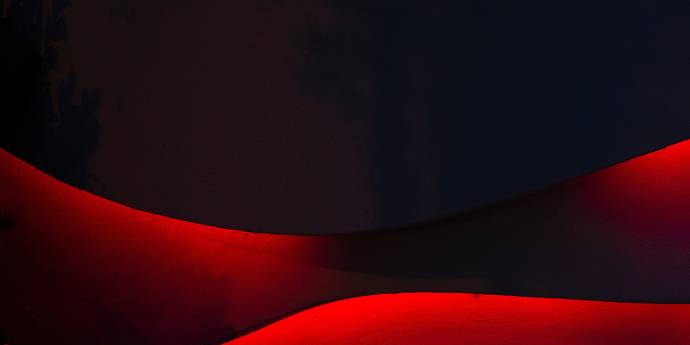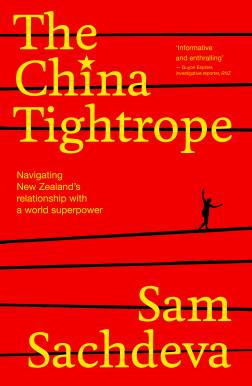Staying true to our values
Saunoamaali’i Karanina Sumeo says in continuing to do business with the US we need to be clear about our values.

New Zealand companies interested in trading in China may want to get their hands on a copy of The China Tightrope - Navigating New Zealand's relationship with a world superpower.
Kiwi journalist Sam Sachdeva says the book is timely with changes taking place between New Zealand and its relationship with China, and conversely, China’s relationship with the rest of the world.
“It is such a complex country with a rich history and given its size and growing wealth, we have no choice but to try and better understand what makes China tick,” he says.

The China Tightrope sets out the fault lines that need to be navigated in the years to come, according to Sachdeva who admits that the tightrope metaphor isn’t the most original, but was apt “when thinking about how New Zealand handles relations with China” and the balancing act required to navigate certain topics or issues.
This includes geopolitics, especially with the Russia-Ukraine war and China’s ‘no-limits’ friendship with Russia, which has flow-on effects for its relationship with other countries. This, according to Sachdeva, adds another layer of complexity to trade, especially given New Zealand’s security ties with the US and the need to tread carefully around discussions on the Beijing- Moscow relationship.
“Some of our international partners hold a view that we are somehow a ‘weak link’ when it comes to Beijing, and that adds fuel to calls for economic diversification into new markets,” he says.

Sam Sachdeva. Photo credit: Lynn Grievson
Sachdeva began working on the manuscript for The China Tightrope in late 2021 - a process which flew by, according to the writer and journalist whose fascination with China came off the back of becoming Newsroom’s foreign affairs and trade editor in 2017.
He says since New Zealand signed the NZ-China Free Trade Agreement in 2008, there has continued to be a strong appetite for New Zealand exports in China, which bodes well for Kiwi businesses, and today, the Chinese government is keen to promote even closer trade ties.
“Having said that, sluggish economic conditions in China[…] could have a serious impact for Kiwi exporters.” But he warns that China is not averse to using trade access as a political weapon.
“While we have yet to have any significant disputes ourselves, that is a risk businesses should be aware of,” he says.
Before making the decision to export to China and do business there, Sachdeva recommends Kiwi business owners look to understand China’s private sector. Reinforced in his book by those he interviewed, relationship building in business is key, “rather than simply seeing [China] as an easy source of wealth”.
On the ‘what to be aware of’ radar for businesses entering the Chinese market is the need to navigate potential issues around intellectual property. While the Chinese custom of “guanxi” - mutually beneficial personal and business relationships - can be positive, he says it also exposes people to risk of corruption and should you find yourself in this type of scenario, access to support in China is likely to be very limited.
“While some say the legal system has improved, it can still be difficult to secure justice through the courts, meaning your best support may come through New Zealand government departments like MFAT and NZTE.”
He also says those who have left too much responsibility to local staff have found themselves subjected to fraud and intellectual property theft.
When it comes to perception and power, there is no doubt that China has a long-held reputation as a global threat. The question is whether or not the perception still exists - is it even real and should New Zealand be concerned?
Sachedeva says, yes.
“There is still significant concern about the threat that China poses to the rules-based international order, including in New Zealand; the Asia New Zealand Foundation’s ‘Perceptions of Asia’ survey this year found 37 percent of Kiwis viewed China as threatening, compared with 30 percent who saw it as friendly. While some criticisms of China can be overwrought, I do believe there are grounds to be concerned about Beijing’s approach to human rights issues and its foreign interference efforts, as well as its military build-up.”
Speaking of human rights and supply chain, Covid elucidated the problem of interdependence when global supply chains were heavily impacted. As a result, countries have begun turning inward, seeing companies transitioning to local manufacturing where possible. Those who can’t need to rigorously investigate their supply chains, because not doing so could have detrimental effects.
Take solar panels as one example. A majority of the world’s supply of solar panels comes from China, which has been connected to Uyghur people used as forced labour, exposed to harmful chemicals as in the manufacturing process.
Sachdeva says from an ethical standpoint, New Zealand businesses need to take this seriously and should consider reputational risks associated with ‘severe human rights abuses’.
He says international bodies have found credible evidence of forced Uyghur labour in some industries, and if Kiwi products are found to have been involved in these supply chains “the damage could be significant”.
To ensure that boards and businesses mitigate risks through importation of the manufacturing of goods in China, Sachdeva recommends they undertake sufficient due diligence, especially around any materials sourced from the Xinjiang region.
He says they also need to be “entirely comfortable about the absence of forced labour before signing any deals”. This includes looking to research conducted by human rights groups and reading public records to assess the risk.
“Given the opacity of the Chinese system, you may be unable to satisfy yourself that forced labour laws and other global human rights standards are being met,” he says.
In this case, he thinks Kiwi businesses might be better off considering other import options.
As the world looks to the horizon, Sachdeva doesn’t want to make any predictions about what the next 20 to 30 years hold for New Zealand’s relationship with China - “Predictions are always a risky business!” But he believes there will still be a strong economic partnership between the two countries.
The only concern is an increasingly ‘illiberal and authoritarian’ leadership under Xi Jingping.
“[It] seems unlikely to dissipate any time soon and the list of sensitive topics in the New Zealand-China relationship will only grow rather than shrink…we may find it easier to do business with other like-minded states,” Sachdeva says.
Regardless of whether the Chinese market brings Kiwi businesses the greatest profit margins, he suggests boards and businesses start thinking carefully about economic diversification and building greater resilience into their supply chains.
“It will also be even more important to carry out due diligence when it comes to the practices of Chinese partners, and to understand the impact of geopolitics on trade in terms of sanctions lists and the US-China decoupling in technology and other areas.”